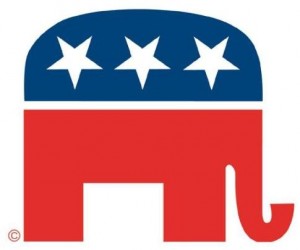 I am certain at some point during the past 18 months you found yourself feeling like that kid riding in the backseat of the family car on what is supposed to be the “great adventure” to “someplace special.” But the only thing you can muster after about 15 minutes is, “Are we there yet?” Well, kiddies, Tuesday night we arrived, and the trip that was Election 2012 was finally over.
I am certain at some point during the past 18 months you found yourself feeling like that kid riding in the backseat of the family car on what is supposed to be the “great adventure” to “someplace special.” But the only thing you can muster after about 15 minutes is, “Are we there yet?” Well, kiddies, Tuesday night we arrived, and the trip that was Election 2012 was finally over.
When this journey started many of us had high hopes for an engaging battle of ideas, but what we got instead was more a battle of super PACs and their negative campaign ads. By the time of the first debate in early October, many voters were fed up and tuned out.
 But a funny thing happened that night: President Obama finally got to meet Mitt Romney — not the caricature of the “rich white guy” or the plutocrat from, well, Pluto, but the husband and father, and the former governor of Massachusetts. It was this night, on the biggest stage of his political career, that Romney found his voice. He didn’t talk process or sound indifferent to the concerns of 47 percent of Americans, nor did he concern himself with the misdirection and bright shiny objects offered up by Democrats (e.g. campaign ads) but instead, looked every voter in the eye and talked to us with specifics and reminded us that we are not better off just because “it could be worse.”
But a funny thing happened that night: President Obama finally got to meet Mitt Romney — not the caricature of the “rich white guy” or the plutocrat from, well, Pluto, but the husband and father, and the former governor of Massachusetts. It was this night, on the biggest stage of his political career, that Romney found his voice. He didn’t talk process or sound indifferent to the concerns of 47 percent of Americans, nor did he concern himself with the misdirection and bright shiny objects offered up by Democrats (e.g. campaign ads) but instead, looked every voter in the eye and talked to us with specifics and reminded us that we are not better off just because “it could be worse.”
And for weeks following that debate it appeared, for the Obama campaign, as if the entire 18 months of this campaign had been lost in just 90 minutes. It suddenly sunk in for the Obama team: This campaign actuallywas Romney’s to lose. The president took a crippling hit, subtle but direct. Romney had proven himself presidential, and the president, uninterested. As his momentum grew, Romney pounced at every opportunity to reinforce the perceptions and images from that first debate, even as the president steadily recovered by winning the next two debates.
But what would not become apparent until Tuesday night was that while a good debate — even a great debate — may spark enthusiasm for your campaign, it may not be enough to close the deal with the voters. And Mitt Romney did not close the deal.
It’s true, this election was always about the math: 23 million (unemployed and underemployed), 7.9 percent (the unemployment rate as of October), $16 trillion (U.S. debt) and 46 million (Americans living in poverty). Add to that 43 (the number of continual months of unemployment above 8 percent), 8 (the percentage by which individual incomes have shrunk) and finally, if 8 million people hadn’t quit looking for jobs since the “recovery” began, the unemployment rate would be 11.2 percent.
But it was the number 47 (the percentage of Americans who, according to Romney, wouldn’t vote for him) that seemed to capture the collective imagination of both the media and political worlds. Too bad the rest of us live in the world fixated on those other numbers, and Romney could never close the deal on his ability to fix them.
Consequently, the electoral spanking the Obama campaign laid on Mitt Romney and Paul Ryan was stunning in its swiftness (everyone was planning for a long night of waiting on returns) and its magnitude (while the popular vote was close, with Obama winning by around 3 million votes, the electoral vote was not (332-206)).
When you get whacked the way the GOP got whacked on Tuesday, somebody had better start to pay attention to the reasons why. No amount of denial by Karl Rove on election night or postmortem second-guessing by others on the nomination of Romney or his selection of Ryan can spare this party from the new math: The electorate was 72 percent white, a group Obama lost with 39 percent to Romney’s 59 percent; 13 percent African American, a bloc that gave the president 93 percent of their votes; 10 percent Hispanic, a group the president won 71 percent to 27 percent (a slightly worse outcome than in 2008, when Obama carried Latinos 67 percent to Arizona Sen. John McCain’s 31 percent). Put another way, if Romney had received the same percentage of the Hispanic vote that McCain did, we’d be calling him president-elect today.
As the president moves forward into a second term and the words of Sen. Mitch McConnell (R-Ky.) about a one-term presidency ring in the ears of Republicans, it’s important to understand that what happened Tuesday was not a rejection of the case for conservatism (individual freedoms, smaller and more efficient government, prosperity, entrepreneurism and ownership) but rather a rejection of the way some conservatives made the case (vaginal probes, “legitimate rape,” the “47 percent”).
Sadly, it appears the lessons of 2006 and 2008 (or even 2010, for that matter) were not taken to heart or understood. Republicans fundamentally failed to communicate a message that spoke to our hopes for prosperity, for ourselves and especially for our children. Consequently, one good debate notwithstanding, our case fell flat before the American people.
It’s time to take this wayward party by the scruff of the neck and knock some common sense into it (yes, that means no more coddling crazy) and emerge out of this election as leaders who will speak with clarity and honesty on the issues that matter to 100 percent of Americans.
So like that kid in the backseat of the car asking, “Are we there yet?” Republicans had better realize that we’ve been here for some time now, and America is just waiting for us to get out of the car.









Leave a Reply